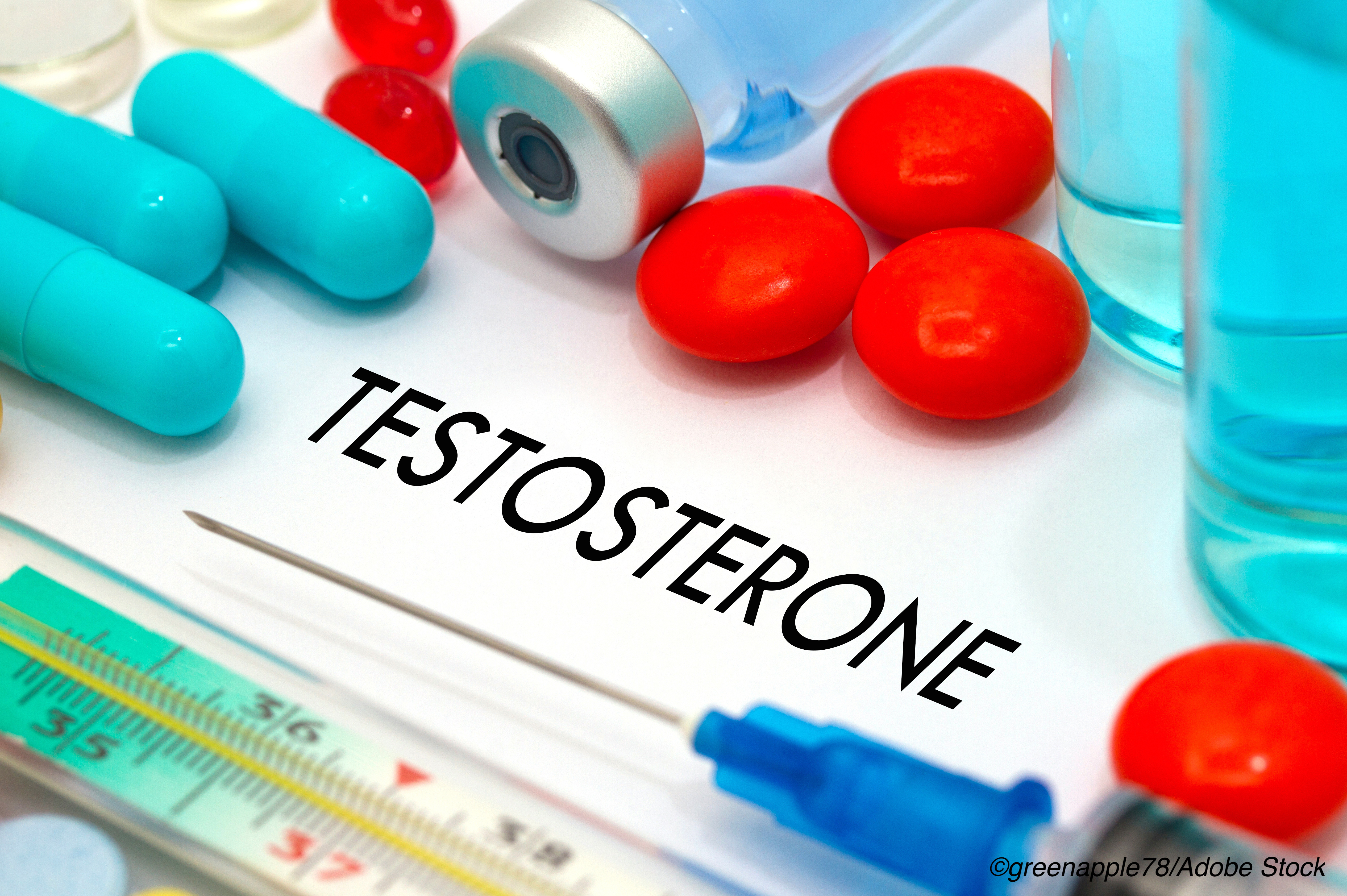Among overweight men with newly diagnosed type 2 diabetes and those at high risk, testosterone therapy was associated with greater prevention or reversal of disease, compared to placebo, in a multicenter, randomized T4DM trial from Australia.
All men included in the study had modestly low or low-normal (<14 nmol/L) testosterone concentrations prior to treatment, as well as impaired glucose tolerance or newly diagnosed type 2 diabetes.
After 2 years of testosterone treatment in conjunction with participation in a lifestyle modification program, oral glucose tolerance testing revealed a 41% reduction in the number of patients with type 2 diabetes, compared to lifestyle modification instruction alone.
Compared to the placebo group, the testosterone-treatment group showed greater decreases in fat mass and greater increases in skeletal muscle mass, strength, and sexual function.
However, compared to placebo, testosterone-treatment was associated with greater increases in hematocrit and prostate-specific antigen, wrote researcher Gary Wittert, of the University of Adelaide, Australia, and colleagues, in The Lancet Diabetes & Endocrinology.
“Our findings suggest that testosterone treatment for 2 years, as an adjunct to a lifestyle program, can prevent or revert type 2 diabetes in overweight men without pathological hypogonadism,” Wittert and colleagues wrote.
However, they noted that while the effect of testosterone for type 2 diabetes in the trial was greater than that reported for metformin by the Diabetes Prevention Research Group, which did not include a lifestyle component, the cardiovascular risk/benefit profile of testosterone replacement therapy remains unclear in this population and others.
“For now, we consider it premature to treat men who do not have pathological hypogonadism with testosterone, for whom the primary approach should be assessment and management of physical and psychological conditions and risk factors known to be causally associated with functional hypogonadism,” the researchers wrote.
T4DM trial was a phase IIIb randomized trial conducted at 6 Australian treatment centers involving men between 50 and 74 years of age with waist circumferences of 95 cm or higher, serum testosterone concentrations of 14.0 nmol/L or lower but without pathological hypogonadism, and impaired glucose tolerance or newly diagnosed type 2 diabetes.
All participants were enrolled in a program designed to promote weight loss through diet and exercise, and all were randomized to treatment with an intramuscular injection of testosterone undecanoate (1,000 mg) or placebo at baseline, 6 weeks, and then every 3 months for 2 years. Randomization included stratification by treatment center, age group, waist circumference, glucose tolerance, smoking, and first-degree family history of type 2 diabetes.
The primary outcomes at 2 years were type 2 diabetes and mean change from baseline in 2-hour oral glucose tolerance test (OGTT). Safety was assessed through masked monitoring of hematocrit and prostate-specific antigen.
Just over 19,000 men were screened, and 1,007 were randomly assigned to the placebo (n=503) or testosterone (n=504) arms of the study.
Among the main study findings:
- At 2 years, 2-hour glucose of 11.1 mmol/L or higher on OGTT was reported in 21% and 12% of participants in the placebo and active treatment groups, respectively (relative risk 0.59, 95% CI 0.43-0.80; P=0.0007).
- The mean change from baseline 2-hour glucose was –0.95 mmol/L (SD 2.78) in the placebo group and –1.70 mmol/L (SD 2.47) in the testosterone group (mean difference –0.75 mmol/L, –1.10 to –0.40; P<0.0001), and the treatment effect was independent of baseline serum testosterone.
- A safety trigger for hematocrit greater than 54% occurred in six (1%) of participants in the placebo group and 106 (22%) of participants in the testosterone group, and a trigger for an increase of 0.75 μg/mL or more in prostate-specific antigen occurred 19% and 23% of participants in the placebo and testosterone groups, respectively.
- Prespecified serious adverse events occurred in 7.4% of participants in the placebo group and 10.9% of those receiving testosterone.
“Neither benefit nor safety can be generalized beyond the relatively low-risk population enrolled, the concurrent introduction of a lifestyle program and the relatively frequent monitoring and support,” the researchers wrote. “Furthermore, in view of the frequency of treatment-induced increased hematocrit, screening for pre-existing increase of hematocrit or risk factors for such an increase would be prudent before considering testosterone treatment.”
They added that while the study data can “inform decisions as a pharmacotherapy for diabetes prevention, the minimum dose exposure, duration of treatment, durability of effect and long-term safety remain to be determined.”
In accompanying commentary, professor Naveed Sattar of the University of Glasgow Cardiovascular Research Center, Glasgow, Scotland, and colleagues agreed that given the uncertainties regarding efficacy and potential safety issues, testosterone therapy cannot, at present, be recommended for type 2 diabetes prevention.
“One of the key goals in preventing diabetes is to slow progression to cardiovascular pathology, and in view of the major uncertainties about the vascular effects of testosterone, outcome trials are necessary before any conclusions can be drawn. Concerns about prostate safety also need longer-term trials,” they wrote.
-
Among overweight men with newly diagnosed type 2 diabetes and those at high risk, testosterone replacement therapy was associated with greater prevention or reversal of disease, compared to placebo, in the multicenter, randomized T4DM trial from Australia.
-
After 2 years of testosterone treatment in conjunction with participation in a lifestyle modification program, oral glucose tolerance testing revealed a 41% reduction in type 2 diabetes, compared to lifestyle modification instruction alone.
Salynn Boyles, Contributing Writer, BreakingMED™
The research was funded by the Australian National Health and Medical Research Council, Bayer, Eli Lilly, University of Adelaide and WW (formerly Weight Watchers).
The researchers reported grants and non-financial support with the testosterone and matching placebo used in the study from Bayer, grants from Eli Lilly, and non-financial support (ie, free access to the lifestyle program for study participants) from Weight Watchers, related to the present study.
Editorial writer Naveed Sattar reported receiving personal fees and a research grant from Boehringer Ingelheim and personal fees from Amgen, AstraZeneca, Eli Lilly, Merck Sharp & Dohme, Novartis Novo Nordisk, Pfizer and Sanofi.
Cat ID: 12
Topic ID: 76,12,730,12,13,138,669,918




Create Post
Twitter/X Preview
Logout